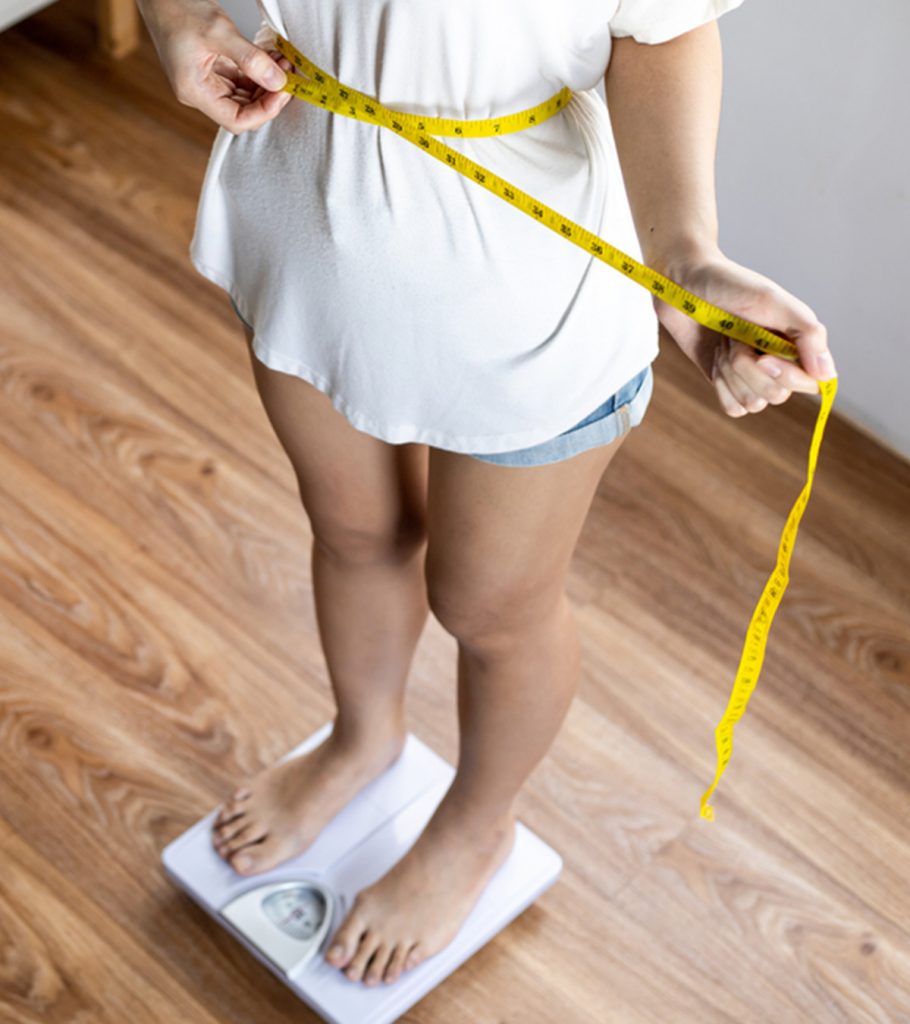Most lactating mothers worry about the increased possibilities of weight gain after breastfeeding. This is because lactationiXProcess of secretion and feeding of breastmilk after childbirth assists in postpartum weight loss. During exclusive nursing (the first six months), you may consume an excess of about 400-500 kilocalories per 24 hours for milk production (1). However, the process of breastfeeding affects the metabolism, due to which you may end up losing some weight.
In this post, we discuss the effects of lactation and its link with maternal weight gain. While on the topic, note that dieting is not recommended during lactation as it may comprise the nutritional needs of the mother and the baby.
Will You Gain Weight Once You Stop Nursing?
There is no substantial research-based evidence that links weaningiXProcess of transitioning a baby’s diet from breastmilk or formula to solids and other liquids and weight gain. It is true that breastfeeding burns more calories and also makes metabolism more efficient (2). However, the likelihood of weight gain after cessation of breastfeeding could vary from one woman to another. While some women gain weight after they wean their babies, it does not happen with all women.
What Causes Weight Gain After Weaning The Baby?
Some women may notice weight gain after they wean their baby.
Trista Best, a registered dietitian from Dalton, Georgia, says, “When moms begin weaning their breastfed babies, the extra calorie need decreases. However, sometimes, moms will experience weight gain after weaning their baby and no longer making breast milk. This can have two causes: hormones and overeating on calories. A breastfeeding and weaning mom’s hormones are changing daily, which can cause the body to hold on to more weight. The weaning mother may also continue to eat the same calories that she ate while breastfeeding out of habit. This can cause weight gain.”
The weight gain may occur due to the following causes.
1. Caloric surplus
Breastfeeding mothers need more calories to meet their requirements for nutrition and breast milk production (3). Thus, your appetite may increase during breastfeeding, and it may stay that way for a while even after you wean your baby. The excess calories may eventually lead to weight gain. The effects of caloric surplus could be compounded by a lack of physical activity and a sedentary lifestyle.
Caela Cook, a new mom, shares how her weight changed after she stopped breastfeeding her baby, “As soon as I stopped breastfeeding, I noticed my clothes were getting tighter. I wasn’t seeing my abs as much. I was literally eating the exact same foods, exercising just as much if not more, and I was just feeling so fat. I’ve never gained weight like this in my life. So, I hopped on the scale, and I was shocked. I had gone from 138 to 146, which is a pretty substantial weight gain for me in such a short period of time (i).”
2. Hormonal changes
Prolactin and oxytociniXA hormone that stimulates let down of the accumulated milk while nursing are hormones that play a significant role in breastmilk production. Once you stop breastfeeding, these hormones begin to drop. Both oxytocin and prolactin play an essential role in your emotional wellness. Some women may experience depression or feel low, causing them to binge eat, which could cause weight gain (4).
Elliot Reimers, a NASM-certified nutrition coach, explains, “Mothers experience hormonal changes after weaning, which can make them feel down. Weaning also makes them feel that they have lost connection with their child now that the child is growing up and ‘no longer needs her.’ When they feel negative emotions, some mothers turn to stress eating, leading to weight gain.”
Tips To Avoid Weight Gain After Weaning
Dr. Brittany Robles, a New York-basedOB/Gyn and NASM-certified professional trainer, says, “Once you stop breastfeeding, it is important to decrease your food intake a bit to compensate for the drop in your body’s energy requirement. It doesn’t have to be all at once. You can do this by gradually decreasing your serving sizes. Don’t eliminate foods, just eat a slightly smaller portion. Over time, your hunger and appetite will adjust to the change in caloric intake.”
The following tips could help you manage your food intake to shed the extra weight you gained after weaning your baby.
- Keep an eye on what you eat. Try to work on reducing the food intake gradually.
- Avoid rapid weight loss diets since they may make you cave into your cravings eventually, adversely affecting your maternal health.
- Listen to your body and eat only when you are hungry. Do not overeat.
- Eat healthy snacks, such as fruits and nuts, to provide yourself with the necessary nutrients and calories.
You may also make the following changes to your lifestyle.
- Engaging in moderate exercise is beneficial for weight management. If you do not have more free time on hand, you may spread out your workouts into various parts across the day.
- You may exercise 15-20 times multiple times a day.
- Stay active whenever possible. For instance, if you can walk to a place, then avoid using the car or bus.
- Set realistic goals. Losing excess weight could take weeks or even months. Respect your body’s limits, and do not push it to the point that you risk injury.
- You may try some fun workout ideas that can be done along with the baby here.
Some women associate breastfeeding with weight gain, but no studies have proven the same. However, after weaning a baby, weight gain in some women could be due to hormonal changes or surplus calories. Moderate exercise, eating a healthy diet, and staying active as much as possible are a few tips that can help manage weight gain after breastfeeding the baby. However, note that losing the extra baby weight will take time, so do not rush to lose weight faster.
Key Pointers
- There is no substantial scientific evidence of weight gain after cessation of breastfeeding.
- Hormonal changes, caloric surplus, and changes in eating habits and lifestyle can be reasons for weight gain after breastfeeding.
- Eating healthy, indulging in physical activities, and limiting excess calories or empty calories can help prevent weight gain after breastfeeding.













